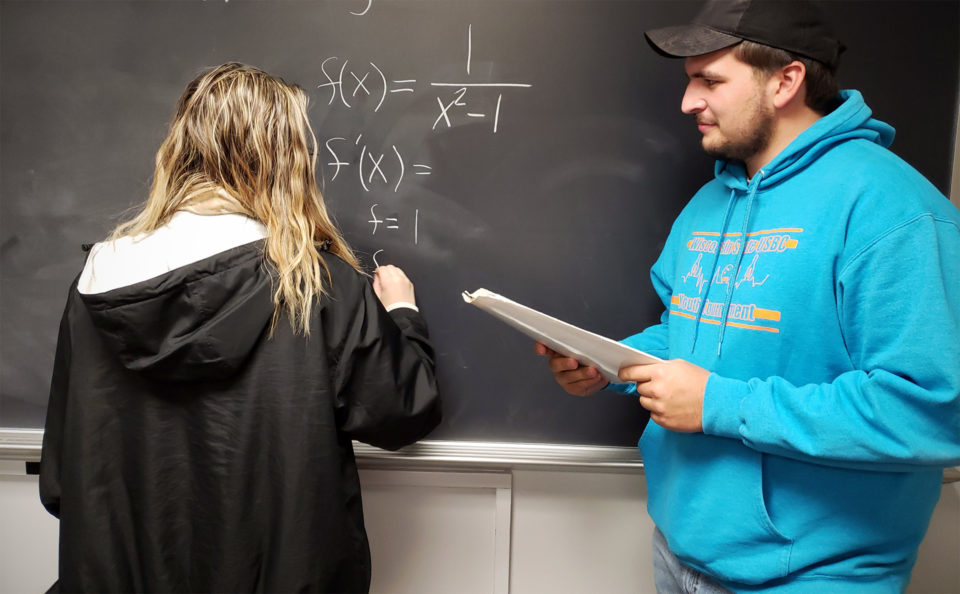UW initiative aims to help students succeed in math courses
Falcon News Service
November 20, 2019

The UW System has implemented a plan to increase student success in their first college-level math courses.
The changes, part of the Math Initiative project, are taking place across all 13 UW four-year institutions.
Alice Pulvermacher, the principal investigator and project director of the initiative, said the priorities of the initiative are increasing enrollment in math courses in a student’s first year in college, reducing the amount of students taking non-credit bearing developmental courses, improving math courses overall and ensuring these math credits will transfer between UW schools.
“Math has been a primary barrier for student retention and graduation, as a result. So we wanted to do something about that,” Pulvermacher said.
The project began in 2018. In the first year, Pulvermacher and her team worked with universities to come to an agreement on common course descriptions and learning objectives in college algebra, statistics and quantitative reasoning courses. Each type of math was then aligned with the appropriate majors.
According to Pulvermacher, defining the appropriate course pathways for each major will lead to improved advising, since students will be able to take math courses that are more relevant to their field of study. For example, the quantitative reasoning course aligns with arts and humanities majors. Quantitative reasoning will be offered in spring semester. It is a math class with few algebra requirements.
“This particular course that we’re adopting is one that has a lot of real world numbers in it. Current events type of data that you consider and analyze,” said Laurel Langford, chair of the UWRF math department.
Another strategy used in the Math Initiative was to find a common cut-off score for the Wisconsin math placement test. Universities can then decide to put their cut score at or below the standard. Langford said River Falls has a lower cut score in comparison to other UW schools.
“We place more students into college algebra rather than a prep course compared to a lot of the schools in the system,” Langford said.
The initiative also will reduce the number of students taking developmental math courses. These courses do not count towards graduation, and as a result they often hurt retention rates. Instead, the UW System is introducing a corequisite for college algebra.
“The corequisite is aimed at people that are most likely to be taking college algebra but not succeeding,” said Langford.
Timothy Boerner, a lecturer and director of the UWRF Math Help Center, helped develop the corequisite last summer. He said it will give students a chance at extra practice.
“When I took calculus as a freshman, there was something similar in a way. We would have lecture on Monday, Wednesday, Friday, and problem solving on Tuesday and Thursday where we could work on problems. This corequisite is going to be similar,” said Boerner.
The Math Initiative received funding through a three-year $2.3 million grant that the UW System was awarded by the Madison-based Ascendium Education Group, a nonprofit loan guarantor. Going forward, Pulvermacher and her team plan to work with educators in the state’s technical college system as well as K-12 systems, helping educators understand the courses that students will be taking at the college level.
